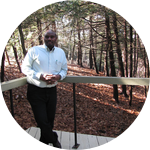About This Project
Climate changes are taking a toll on the Earth's environment. My focus is on the ecologically vulnerable sub-Saharan Africa where the issue is aggravated by political, economic, and social factors. We plan to test how two adaptation strategies, water harvesting and vegetation enclosures, affect forest ecosystem integrity and resilience in Sudan.
Ask the Scientists
Join The DiscussionWhat is the context of this research?
Sudan's dry land forests(e.g. Al-Nour forest) provide essential environmental, economic, and social services. These include: shelter for displaced people; habitat for wildlife species; food and income generation for thousands of people; and grazing areas for livestock throughout the year. Climatic change and drought are expected to further impact these forests, altering their physical, chemical, and biological components both independently and in concert with other anthropogenic stressors such as deforestation. Examples of independent effects of climatic change include: changes in plant and animal phenology; increased salinity resulting from higher temp. and evaporation rates with further effects on the germination rates of forest plants; and loss of forest wetland areas during drought.
What is the significance of this project?
The broader impacts of this study are not limited to only help to enhance forests adaptation potential to environmental challenges or sustain their essential goods and services to many local communities (e.g. nomads tribes), but also try to develop a novel method for climate change vulnerability assessment that crucial in planning adaptation and conservation strategies in Sudan and throughout Sub-Saharan region. In addition to that, the project plots can be a seed for Long-Term Ecological Research (LTER) sites in Sudan where such studies are extremely rare and important to detect environmental changes in systematic basis for such vulnerable areas, as well as offer a significant training and capacity building opportunities to local African students and climate change stakeholders.
What are the goals of the project?
We plan to develop a system for assessing, quantifying, and long-term monitoring the vulnerability and adaptation potential of Al-Nour reserved forest as a case study for the dry land forests ecosystems in central Sudan. My first specific objective is to test the efficacy of set of potential climate-change adaptation strategies to increase the resilience of these dry land forest ecosystems. Second, I aim to develop and communicate an index of ecosystem vulnerability – a tool that can be measured easily by monitors and used to quantify the effects of conservation and climate-change adaptations. Finally, predict the resilience of such ecosystems to future climatic changes.
Budget
Effects of climatic change and anthropogenic disturbance in forests ecosystems in sub-Saharan Africa (e.g. Sudan) are further compounded by administrative and policy challenges that include lack of funding and insufficient governmental support to address these any environmental problem (e.g. climate change or desertification). Accordingly, help to establishing, for example vegetation enclosures or rainwater harvesting system will beis extremely valuable not only because they are going to be the first study of its nature in the country, but also will intuitively help demonstrate the negative effects of deforestation and/or drought on vegetation and wildlife dynamics in adjacent areas.Similarly availability of research supplies and equipments are crucial in this project and can be a seed to maintain facilities for long-term ecological monitoring. I believe that the success of this project will bring the hope to thousands of people who live around and essentially depend on these forests.
Endorsed by
Meet the Team
Ahmed A. H. Siddig
I grew up in a beautiful area in western Sudan, Darfur where its nature has inspired me a lot to care about the environment. I studied forestry at University of Khartoum and got my B.Sc in 2006, then received my M.Sc. in 2009 in dry lands ecology and desertification studies from same university.
In May 2015 I've been awarded the PhD in Environmental Conservation from the University of Massachusetts where I worked with Professor Aaron Ellison in developing and applying ecological indicators for long-term monitoring of ecological changes in Northeastern US forests. Also between 2012 to 2015, I've been affiliated graduate research assistant at Harvard Forest, Harvard University where I've done my PhD's dissertation research and got a unique training opportunity in ecology.
Beside my work as lecturer of forestry and wildlife ecology at the University of Khartoum (Sudan) since 2010, I'm currently a postdoctoral researcher working with Prof. Carsten Dormann (University of Freiburg, Germany) and Prof. John Richardson (University of British Columbia, Canada). My current postdoctoral research is sponsored by the German's DAAD-P.R.I.M.E postdoctoral fellowship for the year 2015.
Project Backers
- 8Backers
- 6%Funded
- $240Total Donations
- $30.00Average Donation

